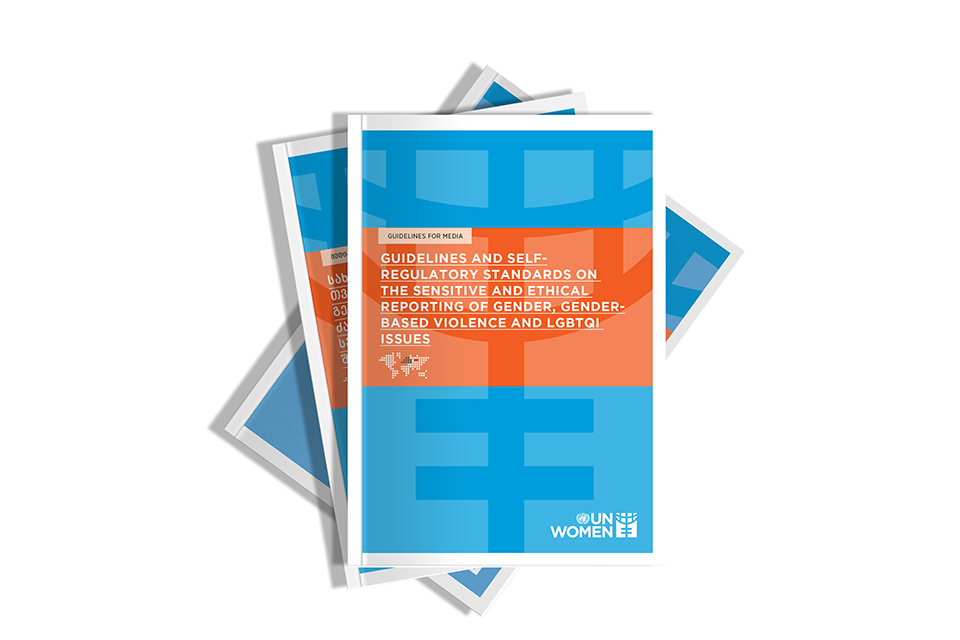UN Women promoting ethical media coverage of Gender, Gender-based violence and LGBTQI issues
Date:

As a powerful tool for shaping public opinion, the media strongly influences the formation of social and cultural norms related to gender and sexual orientation. More than that, the language used by reporters in their coverage is often directly connected to the violence against women and LGBTQI people. This factor further emphasizes the huge responsibility that media representatives have, including in Georgia, in terms of providing fair, accurate, stereotype-fee and balanced coverage of the issues related to women, gender and sexual orientation.
Given the significance of this issue, and with the support of the European Union, UN Women closely cooperates with the Georgian Charter of Journalistic Ethics and, within the framework of the MoU signed with the Charter, implements a number of initiatives focused on raising the media’s awareness. One such initiative was a special publication for journalists titled “Guidelines and Self-Regulatory Standards on the Sensitive and Ethical Reporting of Gender, Gender-Based Violence and LGBTQI Issues”.
The purpose of the guidelines is to reduce the existing stereotypes, prejudices and types of coverage about women and LGBTQI people that may contribute to perpetuating these misconceptions and legitimizing violence. The recommendations contained in the guidelines alongside highly responsible coverage of the cases of violence against women will promote zero tolerance for violence against women and girls. In addition, more informed coverage of LGBTQI issues will help raise awareness, which will ultimately reduce prejudices, hate speech and violence.
“Before now, there were no detailed recommendations on the coverage of gender and LGBTQI issues,” says Mariam Gogosashvili, Executive Director of the Georgian Charter of Journalistic Ethics, who was directly involved in drafting the guidelines. “Therefore, it is very important to have this handbook. At the same time, it reflects the policy that the media outlets should have regarding the mentioned topics. It is noteworthy that we have had an opportunity to present the document to the media representatives, who afterwards expressed their readiness to be guided by the recommendations reflected therein.”
It should be noted that, while working on the guidelines, a training module was also created for journalists. The trainers who had been trained in advance with the module then held trainings on gender-sensitive reporting for media representatives in Tbilisi, Kvemo Kartli and Guria.
The guidelines were prepared within the framework of the programme “Ending Violence against Women and Girls in Georgia”, implemented by UN Women and UNFPA with the generous financial support of the European Union.